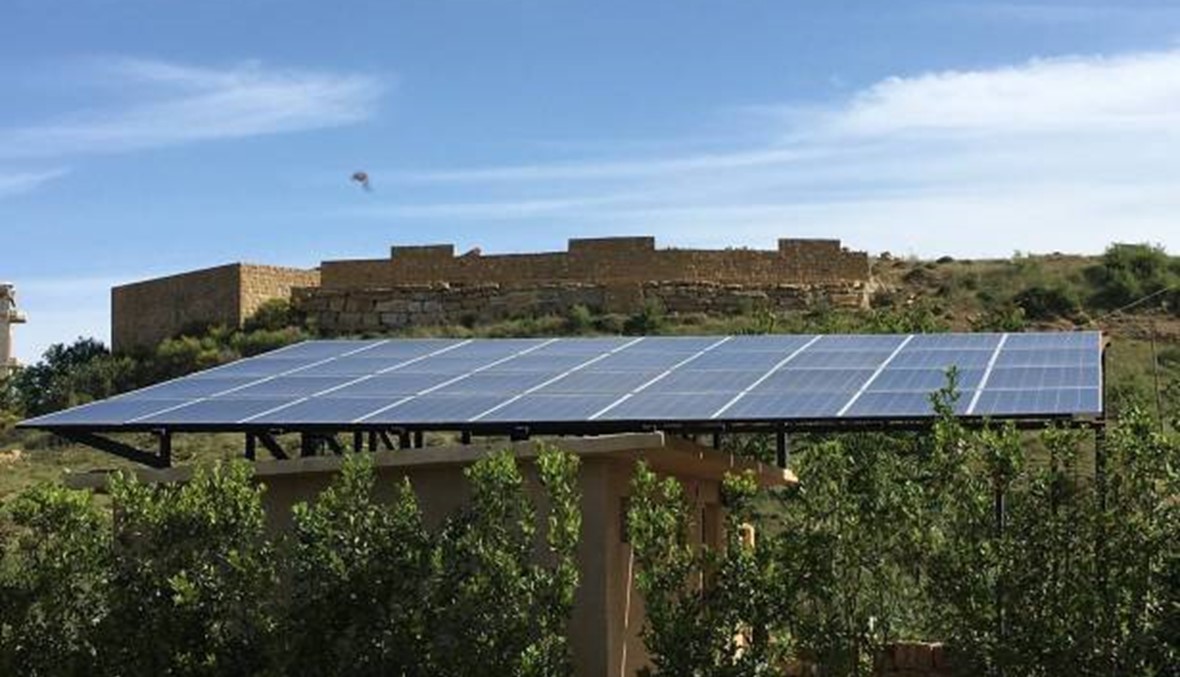
BEIRUT: Renewable sources of energy – notably wind and solar – are on the rise in Lebanon, with their use and implementation expected to add an increased percentage of power to fill the supply-demand gap left by the faulting Electricite Du Liban.
With the conversation around climate change becoming increasingly vocal and fossil fuel prices fluctuating and proving to be highly problematic, attention has now turned to green energy. Although nuclear was once viewed as the tool that will lead the world into the future, disasters at the Fukushima and Chernobyl plants have cast doubts on that assumption.
These developments have therefore put renewable energy at the forefront of the world’s search for a sustainable way to power itself. According to a study conducted by the consultancy group Mordor Intelligence, global annual solar power production is estimated to reach 500GW by 2020, from 40.134 GW in 2014.
Unsurprisingly, Lebanon is following suit.
The initial main concern surrounding solar energy was the cost of harnessing Photovoltaic (PV) cells from the sun, which in turn are translated into a stream of usable energy.
Lebanon has been plagued by power shortages since the devastation of the Civil War, with its power plants struggling to provide a constant stream of energy for citizens across the board. According to several media reports, demand continues to exceed production capacity by an average of some 800 megawatts, with the gap being filled by private generators, a luxury that not all citizens can afford.
This fact, coupled with its near total reliance on coal and oil products according to the International Energy Agency (IEA) report released in 2014, has pushed the Lebanese Ministry of Energy and Water to seek new partnerships in order to curb its carbon footprint.
In January 2014, the Ministry announced a joint project with the United Nations Development Program (UNDP) called the Small Decentralized Renewable Energy Power Generation Project (DREG) to be executed in coordination with the Lebanese Center for Energy Conservation (LCEC).
The project aims to help Lebanon fulfill its pledge of increasing its renewable energy production to 12 percent by 2020, in accordance with the 2009 Copenhagen Climate Summit.
Lebanon’s private and public sectors have a lot to a lot to gain through this initiative, which seeks to unlock their wider potential through investment in solar PV technologies. This is achieved by bringing together both sectors and Banque Du Liban (BDL); under the wider DREG project.
In 2013, BDL launched an initiative titled ‘National Energy Efficiency and Renewable Energy Action’ (NEEREA); a soft loan program aimed to drive up investment in PV, which grew to $30.5 million by the end of 2015, up from $9.4 million in 2013, according to DREG Project Manager Jil Amine.
According to BDL’s website, the agreement aims to provide a framework of cooperation and facilitate collaboration between both parties (BDL and UNDP) in order to promote and raise awareness regarding the sustainability and efficiency of solar energy.
One of the companies that has benefited tremendously from this initiative is solar installation company ME Green which was established in 2010.
Lara Khoury, ME Green’s Business Development Manager, emphasized the importance of BDL’s NEERA program saying “these Green loans with a low-interest rate (~1 percent) up to 14 years accompanied by a two year grace period have incentivized the industrial sector to invest in PV solutions”, while adding that “DREG’s initiative offering grants to the public sector has also boosted investment.”
The company has been involved in numerous wide scale projects, including the installation of solar panels within ABC Dbayeh which provide up to 229KW of power. Moreover, they have executed installations at Lycee Francois Habbouche in Nabatye, which according to Khoury has “immense financial and environmental advantages as well as raising awareness in the minds of the pupils and their parents in regard to the importance of PV solutions.”
These developments have enabled those involved to reduce their energy cost while having a positive impact on their cash flow and reducing their carbon footprint.
ME Green has also partnered with Khoury Home, one of Lebanon’s main retailers in order to make PV solutions more accessible to the public. Khoury believes that PV offers solutions to the problem of constant power cuts that face the Lebanese citizenry while also replacing the use of polluting generators “by using the free energy of the Sun and saving money.”
As a result of these different initiatives, the conversation surrounding solar energy has shifted in Lebanon, notably due to DREG’s grants which cover as much as 25 percent of the project’s cost as well as the former offering consultancy support, something which has pushed the private sector to consider renewable energy as a useful solution for its energy problems.
Although Lebanon has seen progress ever since the DREG project was initiated in 2014, Khoury argues that there is still room for improvement while highlighting the role the government must play by “eliminating custom tariffs on all related renewable energy products, encouraging the use of these solutions, as well as facilitating the access of financing different renewable energy solutions.”





 Messenger
Messenger
 Whatsapp
Whatsapp
 Threads
Threads
 Email
Email
 Print
Print
 X
X
 Facebook
Facebook

